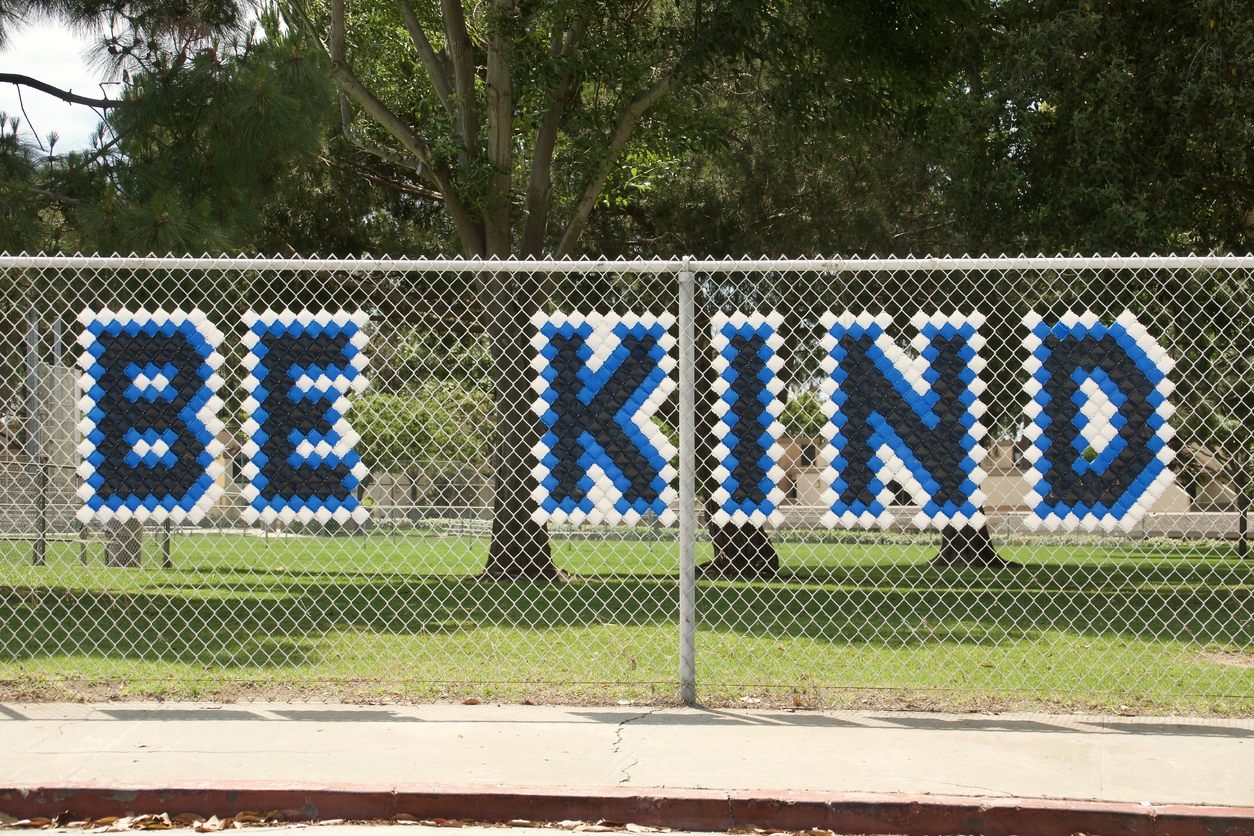Acts of kindness, those simple yet profound gestures that extend a helping hand, hold a special place in our lives and society. They encompass deeds driven by compassion, empathy, and an innate human desire to make a positive impact on others. Kindness is not merely a sentiment; it is an actionable force that permeates personal and societal landscapes, igniting a cascade of positive consequences.
On an individual level, acts of kindness are transformative, nurturing emotional well-being and strengthening mental resilience. In society, they serve as a cornerstone for community cohesion, fostering empathy, understanding, and solidarity among diverse individuals. This post explores what happens when you act kindly, delving into the remarkable ripple effects of kindness and unraveling its profound impact on individuals and the tapestry of society. Take a look!
The Science Behind Kindness
Kindness goes beyond mere sentiment; it has a scientific footprint that influences our mental and physical well-being. Numerous studies and research affirm the profound impact of performing kind acts on our psychological and physiological health. The science behind kindness provides compelling evidence that performing acts of goodwill offers tangible, measurable benefits to mental and physical well-being, reinforcing the profound significance of these actions.
Psychological Effects
The act of extending kindness is not only beneficial to the recipient but also significantly boosts the psychological well-being of the giver. [1] It triggers the release of neurotransmitters like dopamine and oxytocin, known as “feel-good” chemicals. Kindness fosters positive emotions, reduces stress, and enhances mood, contributing to improved mental health. Research indicates that acts of kindness lead to greater life satisfaction and increased levels of happiness. [2]
| Psychological Effect | Description |
| Increased Happiness | Kindness is associated with elevated feelings of happiness, fostering positive emotions and well-being. |
| Reduced Stress | Engaging in acts of kindness leads to stress reduction, both in personal experience and in the physiological responses to stressors. |
| Enhanced Self-Esteem | Acts of kindness contribute to improved self-esteem and self-perception. They reinforce a sense of self-worth and self-identity. |
| Cultivation of Empathy | Kindness nurtures empathy, enabling individuals to better understand the experiences and emotions of others. It fosters a deeper sense of connection and shared understanding. |
Physiological Impact of Kindness
The benefits of kindness extend to our physical health. Studies show that acts of kindness can reduce blood pressure and lower stress levels, leading to improved heart health. [3] The release of endorphins resulting from kind actions also contributes to overall well-being and even aids in pain management.
Moreover, performing acts of kindness can strengthen the immune system, enhancing the body’s ability to ward off illnesses. [4] This physical resilience, linked to kindness, showcases the intricate connection between our mental state and physical health. The same connection is what happens when you experience goosebumps.
| Physiological Effects | Description |
| Lower blood pressure | Acts of kindness have been associated with lower blood pressure, contributing to cardiovascular health and reducing the risk of hypertension. |
| Enhanced immunity | Kindness can boost the immune system, increasing the body’s ability to defend against illnesses and infections |
| Reduces pain | Engaging in acts of kindness triggers the release of endorphins, which can reduce perceptions of physical pain. |
Research Supporting the Positive Impact
Numerous studies and research endeavors underscore the affirmative influence of kindness on mental and physical well-being. [5] Scientific investigations have consistently demonstrated the correlation between acts of kindness and enhanced quality of life. [6] The empirical evidence encourages individuals to embrace kindness as a deliberate pathway to better mental and physical health.
In examining the science behind kindness, we unveil the remarkable ways in which compassion and benevolence positively impact the human experience. These revelations bridge the gap between the heart and the laboratory, illuminating the profound and evidence-backed power of kind acts.
Impact on Mental Health
Kindness exerts a profound and positive influence on mental health and emotional well-being. This impact unfolds across different aspects, contributing to improved mental health in numerous ways.
Enhanced Emotional Well-Being
Kindness acts as a catalyst for improved emotional well-being. Engaging in benevolent behaviors fosters a sense of happiness and contentment, similar to those associated with eating the universally loved sweet, chocolate. The positive emotions generated through acts of kindness contribute to greater emotional resilience, offering a buffer against stress and emotional distress.
Improved Social Connections
Kindness fosters stronger social connections, resulting in an enhanced support system. These connections provide a sense of belonging and reduce feelings of isolation, ultimately contributing to improved mental health.
Positive Outlook
Kindness promotes a positive outlook on life. Acts of goodwill not only elevate one’s mood but also nurture a hopeful and optimistic perspective. This optimistic outlook is integral to better mental health.
The impact of kindness on mental health manifests in various ways. This multifaceted effect underscores the profound role of benevolence in enhancing emotional well-being and contributing to a more fulfilling life.
Empathy and Connection
Acts of kindness are not isolated actions but powerful catalysts for empathy and the enhancement of human connections. They play a pivotal role in fostering understanding and promoting a sense of community and belonging.
Cultivating Empathy
Kindness serves as a remarkable tool for cultivating empathy. [7] By engaging in acts of kindness, individuals gain insight into the experiences and feelings of others. The empathy nurtured through these actions enables individuals to connect on a deeper level, promoting mutual understanding and compassion.
Enhancing Human Connections
Kindness goes beyond individual acts; it has the transformative power to strengthen the bonds within communities. Acts of kindness create a sense of unity and belonging among diverse individuals. Whether through collective efforts or spontaneous individual gestures, they form the threads of a tightly woven social fabric, reminding us of the interconnectedness of humanity. [8]
Examples of Kindness in Community
Examples of kindness within communities abound. [9] From neighbors helping each other in times of need to volunteers dedicating their time to charitable causes, these acts of goodwill create a sense of unity and solidarity. Kindness is the glue that holds communities together, fostering a harmonious coexistence that celebrates the values of empathy and connection.
In examining the impact of kindness on empathy and human connections, we find that these actions form the bedrock of harmonious societies, building bridges that reach across diverse backgrounds, experiences, and perspectives. Kindness, in its simplest forms, has the power to bind individuals and communities in a shared journey of compassion and understanding.
Ripple Effects of Kindness
Kindness possesses a unique ability to set in motion a chain reaction that extends far beyond the initial act. [10] A single gesture of benevolence can create a domino effect, influencing not only individuals but also entire communities. Stories and examples vividly illustrate the profound and far-reaching influence of kindness.
Creating a Chain Reaction
Acts of kindness often spark a ripple effect by inspiring others to pay the kindness forward. A simple act of helping a stranger, for instance, can motivate that person to offer assistance to someone else, creating a continuous flow of goodwill. This chain reaction has the potential to touch numerous lives, perpetuating kindness throughout society.
Influencing Others and the Wider Community
Kindness does not remain isolated; it radiates outward. Stories abound of how a single act of compassion can inspire individuals to engage in larger community initiatives. These initiatives encompass everything from charitable endeavors to social movements, all born from the initial spark of kindness. Such examples demonstrate the transformative power of goodwill within society. [11]
Cultivating Kindness
Cultivating kindness is a conscious and purposeful endeavor that can lead to a more compassionate and harmonious society. Strategies to incorporate and encourage kindness in daily life, as well as suggestions for fostering a culture of kindness in various settings, serve as guideposts for this transformative journey.
Incorporating Kindness into Daily Life
Incorporating kindness into daily life involves simple actions like actively listening to others and offering small gestures of help or appreciation. These acts, such as holding a door or offering a genuine compliment, can make a noticeable difference in someone’s day.
Practice Active Listening
Kindness can start with our ears. Actively listening to others, rather than simply hearing, is an essential component of empathy. When we truly listen, we acknowledge others’ feelings and experiences. This practice can be as simple as giving someone your full attention during a conversation, allowing them to express themselves without interruption.
Small Acts of Kindness
Acts of kindness need not be grand or elaborate. Small gestures, like offering a smile to a stranger, holding the door open, or expressing appreciation, can brighten someone’s day. These simple actions create a more positive and inclusive atmosphere in daily interactions, reminding us of the power of basic human decency.
Volunteer and Give Back
Volunteering is a powerful way to incorporate kindness into one’s life. By donating time, energy, or resources to charitable causes, individuals directly contribute to the well-being of others. Whether it’s assisting at a local food bank, mentoring a young person, or participating in community service, these acts of kindness make a tangible difference and create a sense of fulfillment.
Fostering a Culture of Kindness
Fostering a culture of kindness involves promoting values like empathy, compassion, and teamwork in various settings. These efforts collectively contribute to a society where kindness is not only practiced but woven into the fabric of daily life.
Educational Initiatives
Schools and educational institutions play a vital role in fostering kindness. By implementing kindness programs, they can teach students the values of empathy, compassion, and conflict resolution. These programs provide young individuals with the tools to navigate interpersonal relationships, promote tolerance, and build a more inclusive society.
Workplace Culture
Encouraging kindness in the workplace has benefits that extend beyond the office. Companies that prioritize kindness create a more positive and harmonious work environment. This, in turn, boosts employee satisfaction, teamwork, and productivity. Acts of kindness, such as recognizing colleagues’ achievements or supporting each other during challenging times, enhance workplace culture.
Community Projects
Collaborative community projects are a powerful means of fostering kindness in society. Activities like neighborhood cleanups, food drives, or initiatives to support vulnerable members of the community bring people together for a common purpose. These efforts strengthen the sense of togetherness and community, nurturing kindness as a shared value.
By embracing these strategies and nurturing a culture of kindness, we can create a world where benevolence, empathy, and compassion are not only encouraged but celebrated. This collective effort has the potential to positively influence our interactions, communities, and the broader global landscape.
Conclusion
Acts of kindness, while often seen as simple and selfless gestures, wield a profound influence on the well-being of individuals and society at large. Grounded in empathy, kindness extends beyond its initial act, creating ripple effects that touch countless lives. The science behind kindness reveals the intricate connection between benevolence and mental and physical health. As a society, fostering kindness is not merely a choice but a necessity. It begins with daily practices and extends to educational institutions, workplaces, and community projects. By embracing kindness and its transformative power, we can collectively create a more compassionate world, where empathy and goodwill flourish, enriching the human experience.





